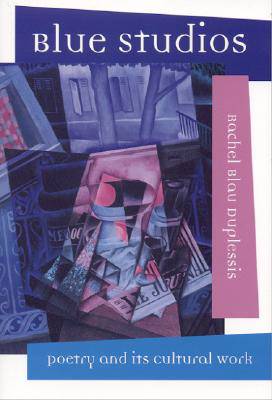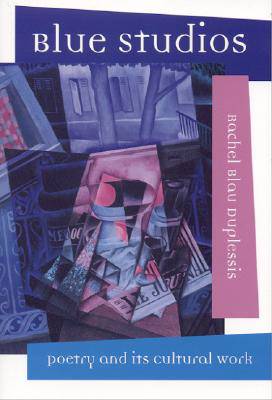
- Afhalen na 1 uur in een winkel met voorraad
- Gratis thuislevering in België vanaf € 30
- Ruim aanbod met 7 miljoen producten
- Afhalen na 1 uur in een winkel met voorraad
- Gratis thuislevering in België vanaf € 30
- Ruim aanbod met 7 miljoen producten
Zoeken
Omschrijving
Feminist issues in avant garde poetry. In her now-classic The Pink Guitar, Rachel Blau DuPlessis examined a number of modern and contemporary poets and artists to explore the possibility of finding a language that would question deeply held assumptions about gender. In the 12 essays and introduction that constitute Blue Studios, DuPlessis continues that task, examining the work of experimental poets and the innovative forms they have fashioned to challenge commonplace assumptions about gender and cultural authority. The essays in "Attitudes and Practices" deal with two questions: what a feminist reading of cultural texts involves, and the nature of the essay itself as a mode of knowing: how poetry can be discursive and how the essay can be poetic. The goal of "Marble Paper," with its studies of William Wordsworth, Ezra Pound, and Charles Olson is to suggest terms for a "feminist history of poetry." "Perspectives must be fashioned that displace and estrange the world," Theodore Adorno wrote, and in the section Urrealism DuPlessis examines the work of poets from several schools (the Objectivists, the New York School, the surrealists) whose work embodies that displacement, among them George Oppen, Lorine Niedecker, H.D., and Barbara Guest. These writers' radical deployment of line, sound, and structure, DuPlessis argues, demonstrate poetry's power not as a purely literary, artistic, or aesthetic force but as a rhetorical form intricately tied to issues of power and ethics. And in Migrated Into," the author probes the ways these issues have informed her, as a poet and a critic; how the political has "migrated into" and suffused her own work; and how the practice of poetry can be an arousal to a deeper understanding of what we stand for.
Specificaties
Betrokkenen
- Auteur(s):
- Uitgeverij:
Inhoud
- Aantal bladzijden:
- 302
- Taal:
- Engels
- Reeks:
Eigenschappen
- Productcode (EAN):
- 9780817315085
- Verschijningsdatum:
- 1/09/2006
- Uitvoering:
- Hardcover
- Formaat:
- Ongenaaid / garenloos gebonden
- Afmetingen:
- 160 mm x 230 mm
- Gewicht:
- 594 g

Alleen bij Standaard Boekhandel
+ 155 punten op je klantenkaart van Standaard Boekhandel
Beoordelingen
We publiceren alleen reviews die voldoen aan de voorwaarden voor reviews. Bekijk onze voorwaarden voor reviews.











